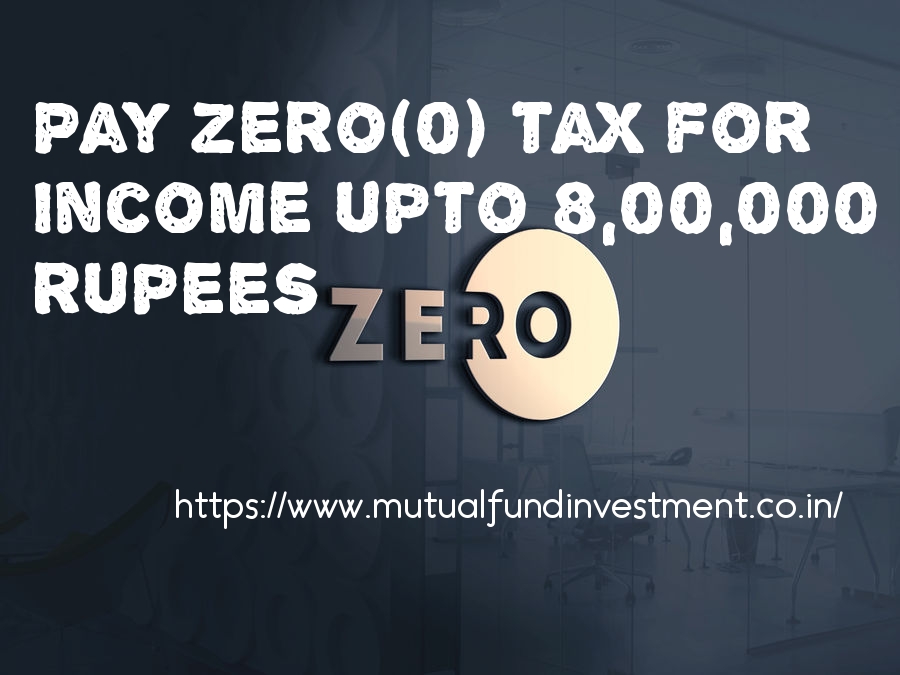Income tax slab for India is defined based on yearly income. Existing tax slab is 0%, 5%, 20% and 30% based on yearly salary. In this blog, we will discuss how to pay zero tax by proper tax planning and investments.
Up to Rs.2.5 lakh Nil
Between Rs.2.5 lakh to Rs.5 lakh 5%
Between Rs.5 lakh to Rs.10 lakh 20%
Over Rs.10 lakh 30%
With proper tax planning, we can decrease the tax amount with help of different income tax sections. Let us discuss each section in details for your understanding including section 80C.
Rebate under Section 87A :
Under section 87A , tax payer can avail tax rebate for Rs.12,500. Net taxable income of the taxpayer is less than Rs. 5 lakh for AY 2020-21, taxpayer would get 12,500 rupees tax rebate and the tax would be zero at the end.
Section 80C :
You can claim a deduction of Rs 1.5 lakh your total income under section 80C. In simple terms, you can reduce up to Rs 1,50,000 from your total taxable income, and it is available for individuals and HUFs. Investments in PPF, insurance, ELSS mutual funds, children tuition fees,five year deposit scheme and sukanya samkrudhi scheme are eligible to claim in section 80C.
Section 80D Medical Insurance :
Medical Insurance – Self, spouse, children
Medical Insurance – Parents more than 60 years old or (from FY 2015-16) uninsured parents more than 80 years old
You can claim a deduction of Rs.25,000 under section 80D on insurance for self, spouse and dependent children. An additional deduction for insurance of parents is available up to Rs 25,000, if they are less than 60 years of age. If the parents are aged above 60, the deduction amount is Rs 50,000, which has been increased in Budget 2018 from Rs 30,000.
Section 10 (13A) HRA exemption :
The amount of HRA exemption is deductible from the total income before arriving at a taxable income. This helps an employee to save tax. But do keep in mind that the HRA received from your employer, is fully taxable if an employee is living in his own house or if he does not pay any rent.
Let us take an example of gross salary of 8 lakhs rupees.
Gross income : Rs. 8,00,000.00
Standard dedution : (-)Rs. 50,000.00
HRA (submit rent receipt): (-) Rs. 60,000.00
Investments in 80C : (-) Rs. 1,50,000.00
National pension scheme(Contribution to Employer) : (-) Rs. 50,000.00 (80CCD)
- Taxable income = Gross income – deductions – 2,50,000(upto 2.5 lakhs no tax)
- Taxable income = 8,00,000 – 3,10,000 – 2,50,000 = 2,40,000 rupees.
- Tax on 2,40,000 is 5% of 2,40,000 = 12,000.
- Maximum tax debate is 12,500 under section 87A. So final tax would be 12,000 – tax debate of 12,000 = 0.(Zero Tax)
If your income is more than 8 lakhs rupees, you can consider medical insurance (section 80D) which gives deduction up-to 50,000 rupees. Food coupons subscription amount which would be deducted from your taxable income.
Action items to pay zero tax:
- Plan investment in section 80C. Start ELSS mutual funds, term insurance to cover 1.5 lakhs including your PF contribution.
- Subscribe to NPS from your employer for maximum subscription upto 50,000.
- Collect rent receipt and submit to employe
- Take medial insurance for your family and submit receipt to your employer.
- Subscribe to food coupons if your employer provides it.
Plan your investment and do tax planning to achieve zero tax. Happy investing and tax planning:)





